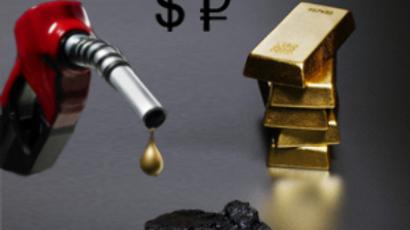U.S. Federal Reserve actions boost Russian stocks
Actions by the U.S. Federal Reserve, announced mid week, provided a buoyant week for Russian stocks as well as oil, gold and the Rouble, while fears mount over the longer term impact.
Oil is up… the dollar’s down…
This week the Federal Reserve vowed to pump a trillion dollars into the U.S. economy buying Treasury Bonds and mortgage-backed securities.
The new money revived hopes for a revival of economic growth, pushing stocks and oil up. But inflationary fears pushed down the dollar, with those seeking a safe haven rushing into gold
Chris Weafer, Chief Strategist at Uralsib, says the news is Russia-friendly… at least for now.
“The investors' view of Russia is still heavily predicated on how they view the rest of the world, and how they view commodities and particularly oil. That view remains hopeful that Russia will do better, and if that view deteriorates we will lose some of our performance. So very much hostage to what happens in the rest of the world for the next several months. Assets are cheap, investors will have to put their money in just because it’s underperforming, but anyway it’s a hostage to what’s happening in the rest of the world.”
Experts say, Russia, like other emerging markets may be the quickest to rebound, but risk being hit the hardest, if the US gets it wrong.
James Baker – former U.S. Treasury Secretary – says apart from the measures America is taking, it should act more decisively on crippled banks.
“I think should not make the mistake that Japan made, back in late 80s and early 90s, when they let banks just muddle along, and becoming, in fact, zombie banks which put them in the ten year period of economic decline . We need to deal with the problem as far as US banks are concerned.”
He says if the US continues piecemeal bail-outs, the country may suffer a decade of recession. Emerging markets fear, if that happens, the US will take them with it.














